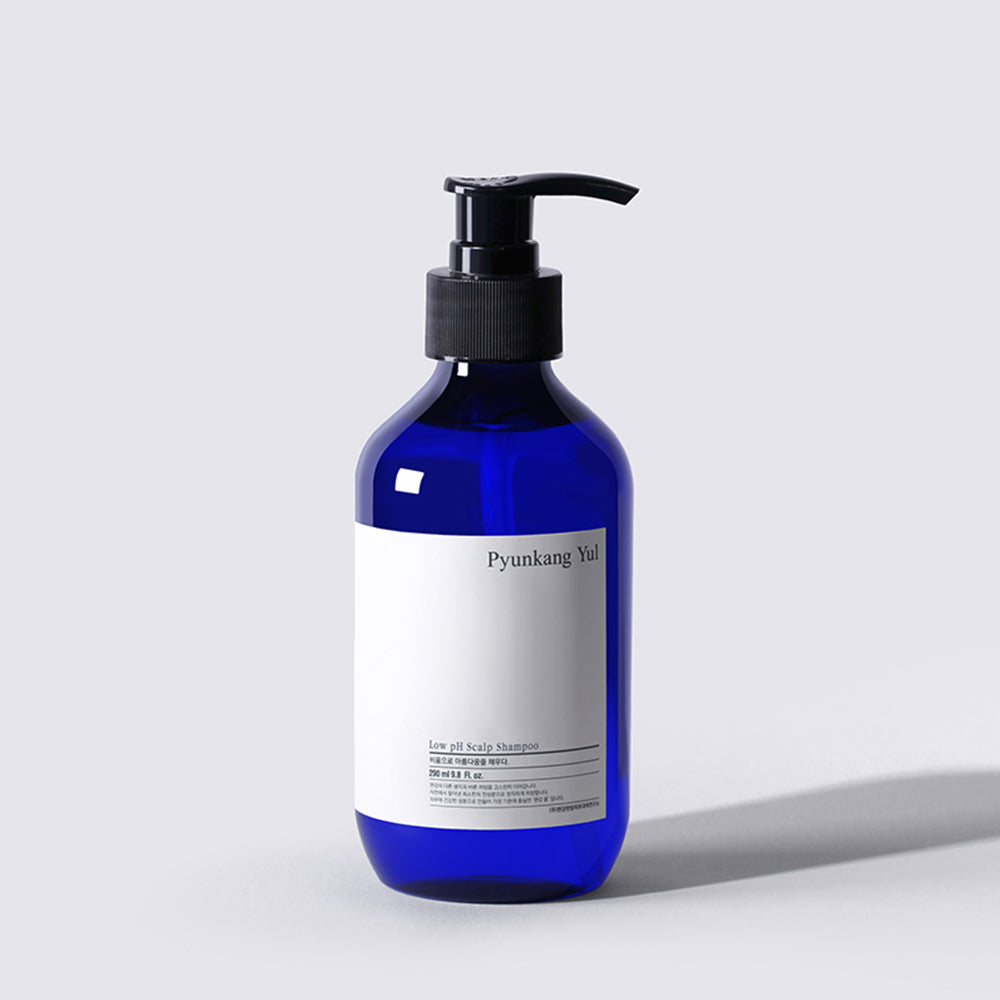
Highlights
WHAT IS IT?
A low pH scalp shampoo
FEATURES
Low pH formula, protects scalp's natural moisture barrier, contains soothing ingredients, mild surfactants, 5 types of Hyaluronic Acid
BEST FOR
Sensitive scalps
CHECKS
Free of parabens, artificial fragrances, colorants
Who Is It For?
Adults (default Above 18) Both Men And WomenWhat Does It Help With?
Prevents Dryness And Irritation Calms Inflammation Hydrates Scalp Promotes Stronger And Healthier HairBudget
AffordableHow To Use
Which routine should it be used in?
Instructions:
Key Information










What Pyunkang Yul Says
Product Description:
The Pyunkang Yul Low pH Scalp Shampoo is a gentle, effective cleanser designed to maintain a healthy, balanced scalp. With a low pH formula, it protects the scalp's natural moisture barrier, preventing dryness and irritation. Infused with soothing ingredients like Lavender Extract and nourishing Coconut Oil, the shampoo calms inflammation and hydrates the scalp, promoting stronger and healthier hair. Its mild surfactants cleanse the scalp of excess oil, impurities, and buildup without stripping away natural oils, while 5 types of Hyaluronic Acid deeply hydrate to prevent tightness and flakiness. Free from harsh chemicals and formulated with EWG-certified safe ingredients, this shampoo is ideal for sensitive scalps, offering a calming, refreshing experience that leaves the scalp clean, comfortable, and nourished.
About the Brand:
Ingredients Overview
Ingredients List
Water, Coco-Betaine, Sodium Cocoyl Alaninate, Lauryl Glucoside, Disodium Laureth Sulfosuccinate, Glycerin, Sodium Chloride, Sodium Lauroyl Methyl Isethionate, Hydroxyacetophenone, Cetyl Alcohol, Caprylyl Glycol, Polyquaternium-10, Citric Acid, Menthol, Guar Hydroxypropyltrimonium Chloride, Melaleuca Alternifolia (Tea Tree) Leaf Oil, Pentasodium Pentetate, Citrus Paradisi (Grapefruit) Peel Oil, Butylene Glycol, Acorus Calamus Root Extract, Allium Cepa (Onion) Bulb Extract, Artemisia Capillaris Extract, Brassica Oleracea Italica (Broccoli) Extract, 1,2-Hexanediol, Cnidium Officinale Root Extract, Houttuynia Cordata Extract, Cysteine, Methionine, Melaleuca Alternifolia (Tea Tree) Leaf Extract, Salvia Officinalis (Sage) Leaf Extract, Camellia Japonica Flower Extract, Zingiber Officinale (Ginger) Root Extract, Ethylhexylglycerin
Key Ingredients
Lavender Extract, Coconut Oil, 5 types of Hyaluronic Acid (not explicitly listed in ingredients)
Ingredients Details
Cetyl Alcohol
Coco-betaine
Disodium Laureth Sulfosuccinate
Glycerin



